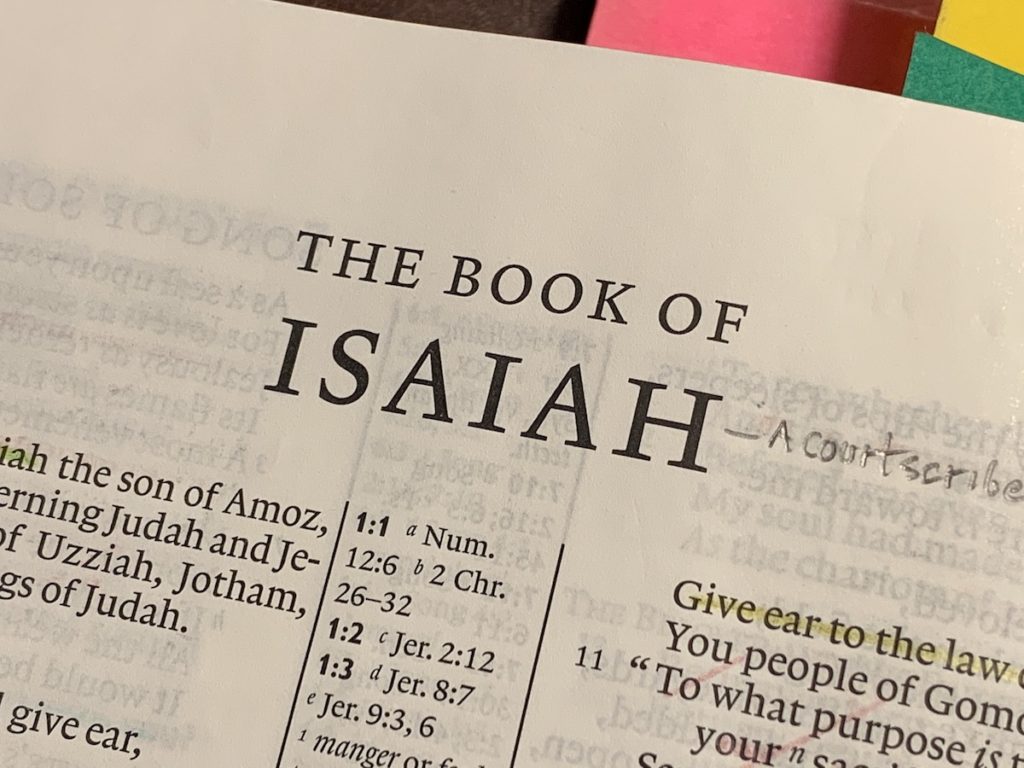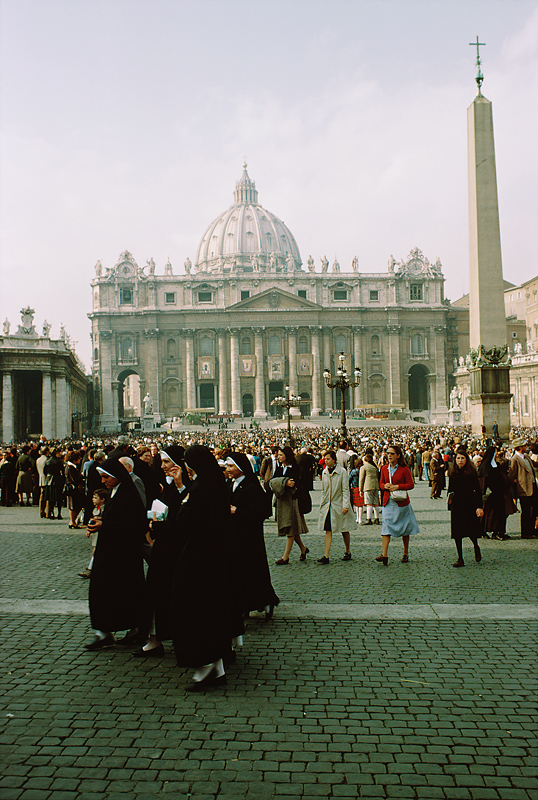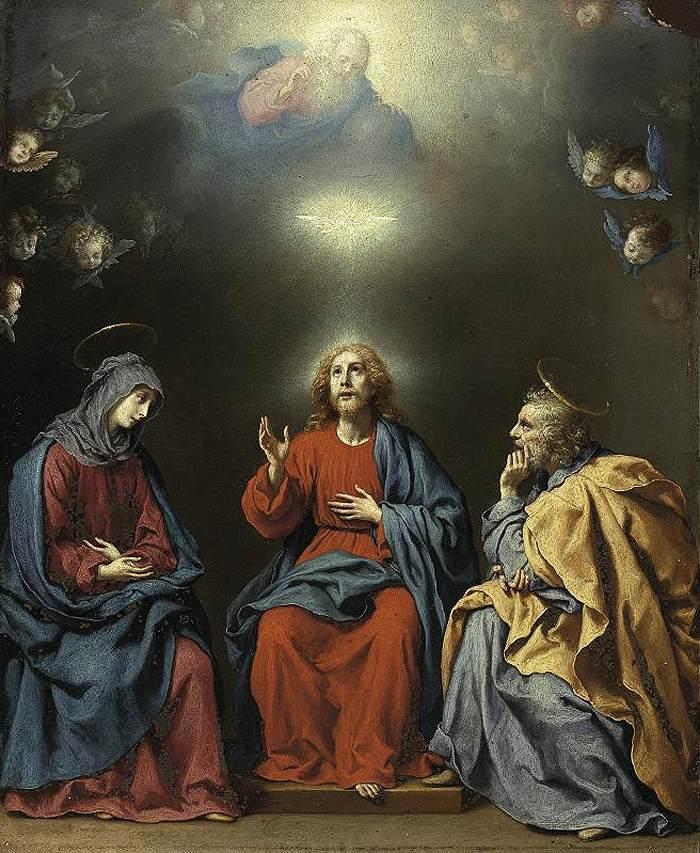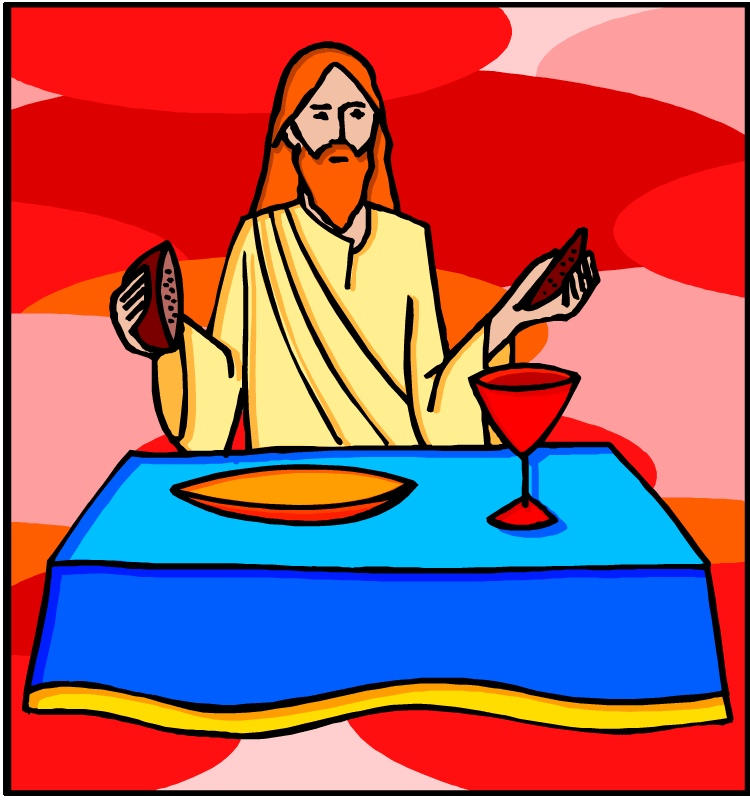
Isaiah 1–66
This article was inspired by the comments made on this blog a few months back by John from Tasmania. He got me thinking about it, and I researched it out, and this article is a result of that. Thank you John!
A case can be made that the first 39 chapters of the Isaiah are representative of the 39 books of the Old Testament or Tanakh, and that the last 27 chapters of Isaiah focus more on the coming Messiah, the preaching of the gospel as contained in the 27 books of the New Testament or Testimony of Yeshua.
Isaiah Part One (chapters 1–39) focuses on calling national Israel to repentance for its spiritual apostasy and predicts judgment upon her if she fails to turn from her wicked way. YHVH’s judgment against Israel largely comes at the hands of those heathen nations surrounding Israel. Isaiah devotes a many chapters pronouncing divine judgment upon those nations, who touched YHVH’s anointed Israel.
Amidst the woeful message of Israel’s apostasy and impending judgment, the prophet also offers many glimmers of hope for backslid Israel including giving prophecies concerning the coming Messiah, the return of Israel’s captive exiles, the Messianic Age or Millennium that will come upon the earth at the end of days, as well the coming of what has become known as the New Testament or the Testimony of Yeshua.
In Part Two of Isaiah (chapters 40–66), the central theme is the Messiah, his coming kingdom—in short, the message of the gospel. In fact, the term gospel or good news originates from the book of Isaiah. Also included in this section of the book are numerous prophecies concerning the regathering of the Israelite exiles back to the land of Israel, divine judgment against heathen nations, the Millennium, the New or Everlasting Covenant, the rebuilding of the temple and the rebirth of the nation of Israel in the end times.
It is evident that there is thematic overlap and commonality between part one and two of the book of Isaiah. This is because the message of repentance from sin, divine judgment against sin, the mercy of YHVH and redemption of his people are relevant universally applicable down through ages because people don’t change and neither do YHVH’s standards or righteousness. However, in my opinion, Isaiah part two seems to place more emphasis what gospel themes, hence it’s prophetic allusions to the Testimony of Yeshua.
Now, let’s make an overview list of the main themes of each section of Isaiah and with their corresponding chapters, so that you can see what we’re talking about.
Isaiah Chapters 1–39
- Holy or Set-Apart Spirit, The—Isa 27:13; 30:21; 32:15
- Israel, Blessing Upon—Isa 32:15–20; 31:4–5
- Judgment Upon Israel for Sin—1:7–9 , 15, 24–24; 2:10–21; 3:1–24; 4:4; 5:8–30; 6:11–13; 7:18–25; 8:5–10, 14–15, 22; 9:8–21; 10:10–14; 17:3–6; 22:1–25; 23:1–18; 24:1–23; 28:1–15; 28:1–15, 17–22; 29:1–8; 30:1–7; 31:1–3; 32:9–14; 33:1, 10–14;
- Judgment Upon Israel’s Enemies—Isa 10:5–19; 13, 14:3–32; 15:1–9; 16:1–14; 17:1–14; 18:1–7; 19:1–24; 20:1–5; 21:1–16; 23, 24; 25:10–12; 26:21; 30:27–33; 34:1–17
- Messiah, The Coming—Isa 7:10–15; 8:13; 9:6–7; 11:1–5, 10; 12:1–3; 26:1, 18; 28:16–17; 29:16; 33:17–24; 35:1–10
- Millennium or Messianic Age’s Coming Predicted, The—Isa 2:2–4; 4:3–6; 11:6–10; 33:17–24; 27:13; 35:6–8
- Mercy Upon Israel, Divine—Isa 14:1–2
- New Testament or Testimony of Yeshua Predicted—Isa 8:16–20 (v. 20 cp. Rev 1:2)
- Prophetic Words or Instructions for People of That Day—Isa 7:1–9; 8:1–4; 36:1–22; 37:1–35; 38:1–20; 39:1–8
- Remnant of Israelites to Return from Babylonian Exile—Isa 10:20–23
- Redemption or Salvation—Isa 4:4; 25:9; 26:1, 10, 19; 29:17–24; 30:15–26; 31:4–5; 33:22–24
- Repent, Call for Israel to—Isa 2:5–21; 12:1–3; 28:23–29; 30:6–17; 31:6; 32:9–15
- Second Exodus, The—Isa 11:11–16; 27:13
- Torah, Rebellion Against—Isa 30:9
Isaiah Chapters 40–66
- Babylon Israel’s Enslavers, Judgment Upon—Isa 47:5–15; 48:14
- Babylon, Come Out of—48:20; 52:11
- Gentiles, Called to Salvation—Isa 60:1–16; 65:1; 66:18–21
- Gospel Message Predicted, Preaching of—Isa 40:9; 41:27; 52:17; 60:1
- Holy or Set-Apart Spirit Outpouring Promised—Isa 44:3–5; 59:21; 63:11, 14
- Hope for and Blessings Upon Israel—Isa 41:15–20; 43:18–21; 44:1–5; 44:24–26; 49:14–26; 51:1–3; 52:1–13; 54:1–17; 55:1–13; 56:1; 57:1–2; 60:1–22; 61:4–11; 62:1–12; 63:7–14
- Islam or Edom, Divine Judgment Against—Isa 63:1–6
- Israel, End Times Restoration of the Nation of—Isa 48:1; 52:1–12
- Lake of Fire, Last Days Judgment Against Unrepentant Sinner in the—Isa 66:14–17, 24
- Messiah’s Coming Predicted—Isa 40:1–5; 41:4, 10; 42:1–7; 43:3; 44:6, 24–28; 45:15, 21; 47:4; 48:12; 49:1–13, 26; 50:4–9; 52:7, 13–15; 53:1–12; 56:1; 59:16–21; 60:16; 61:1–3
- Millennium or Messianic Age’s Coming Predicted, The—Isa 65:17–25; 66:10–13; 22–24
- New or Everlasting Covenant Predicted—Isa 42:21; 55:3
- New Heavens and New Earth Predicted—Isa 51:6; 65:17; 66:22
- Redemption and Salvation Promised—Isa 43:25; 44:22–23; 45:8; 46:13; 49:24; 51:5–8; 52:3, 10; 53:1–12; 55:1–3; 61:10; 65:1
- Repentance, A Call to—Isa 43:22–24; 48:1–22; 51:4–9; 55:6–7; 57:3–21; 58:1–14; 64:1–12; 65:2–7; 66:1–4
- Righteousness, A Call to—Isa 56:1–8; 58:1–14
- Second Exodus Predicted—Isa 43:1–7
- Sin and Idolatry, Turn From—Isa 44:9–20; 46:1–12; 56:9–12
- Temple Rebuilt for the Messiah to Come to Predicted, The—Isa 45:1
- Torah, Return to—Isa 42:21–25






